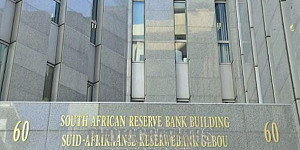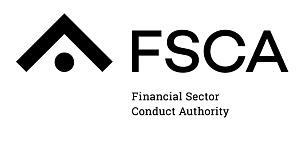Fitch Ratings has downgraded South Africa's Long-Term Foreign-Currency Issuer Default Rating (IDR) to 'BB-' from 'BB'. The Outlook is Negative.
KEY RATING DRIVERS
The downgrade and Negative Outlook reflect high and rising government debt, exacerbated by the economic shock triggered by the COVID-19 pandemic. The very low trend growth and exceptionally high inequality will continue to complicate fiscal consolidation efforts.
The pandemic has severely hit South Africa's economic growth performance, and GDP is expected to remain below 2019 levels even in 2022. A particularly tight lockdown in the second quarter, combined with the broader global and domestic fall-out of the pandemic, led to a sharp fall in output, but GDP had already been contracting in quarter-on-quarter terms since 3Q19. A recovery is on the way as the lockdown was gradually eased during the third quarter and we expect GDP will contract by 7.3% in 2020.
Due to base effects, growth will surge to 4.8% in 2021 but then slow to 2.5% in 2022. We believe that trend growth will remain around 1.5%, and there are risks that lasting effects of the pandemic could further weigh on trend growth. Investment spending had already weakened in recent years, falling last year to the lowest level in real terms since 2012, reflecting challenges to the business environment such as the poor reliability of power supply, labour market inflexibility and subdued domestic demand prospects.
In October the government launched an Economic Reconstruction and Recovery Plan (ERRP), focusing on boosting infrastructure investment, increasing energy supply, job creation and re-industrialisation. However, the track record of implementation of earlier reform initiatives has been relatively weak and, even if implemented, the effect of the reforms would be limited and take time to accumulate. The challenging fiscal context will also complicate some of the initiatives and will weigh on growth over the medium term.
The pandemic shock has led to a sharp fall in government revenue and additional spending needs, worsening already weak public finances. While some of the additional expenditure was covered by reprioritisation, expenditure is still expected to be 0.8% of GDP higher than in the pre-pandemic February Budget. We expect the consolidated deficit to rise to 16.3% of GDP in the fiscal year ending March 2021 (FY20/21), up from 6.4% in FY19/20, overshooting the government's latest projection of 15.7%. This largely reflects our assumption that the government will be forced to reverse a decision not to pay a wage increase agreed for the current fiscal year under the 2018 three-year public sector wage agreement.
A recovery in 2021 and an end to COVID-19 related support programmes will contribute to lower deficits in FY21/22 but the government's target to bring the deficit to 7.3% in FY23/24 will be hard to achieve.
We expect general government debt (including gross loan debt and around 2% of GDP local government debt) to rise to 94.8% of GDP in FY22/23 from 64.9% in FY19/20. Given its lower deficit forecasts, the government expects gross loan debt to rise to 90.1% of GDP in FY22/23 and to peak at 95.3% in FY25/26. The government's projection is subject to considerable risks from its reliance on wage bill savings, relatively optimistic revenue assumptions and contingent liabilities. Finding consolidation measures to compensate for these risks will be complicated, given in-fighting within the government, social pressures and the weak growth environment, which raises risks that consolidation measures are offset by the impact on economic growth.
The government assumes a freeze on wages will bring annual savings of 1.75% of GDP on average over the next two years relative to its October 2019 projections. This is unlikely to be achieved, as wage negotiations over the past decade inevitably led to above-budgeted settlements even as budget assumptions for wage bill driven consolidation were less ambitious than they are now. Upcoming local elections and an important conference of the governing African National Congress (ANC) party, which is in a close alliance with one of the leading trade union confederations, will further complicate wage negotiations.







































